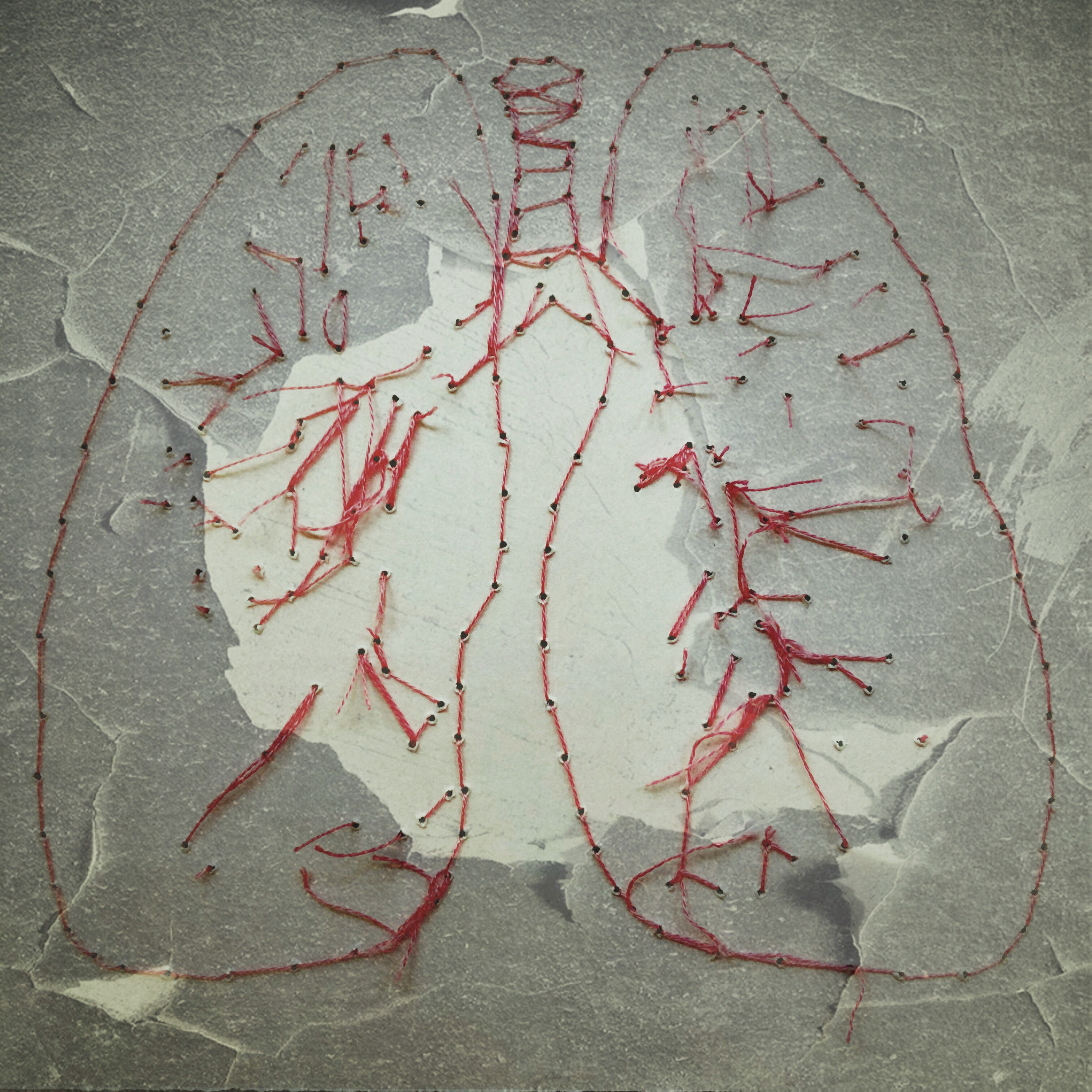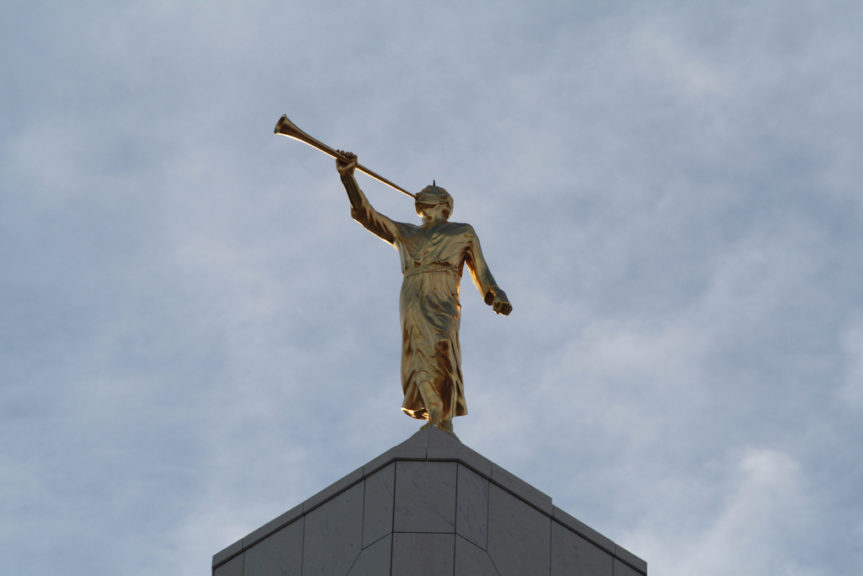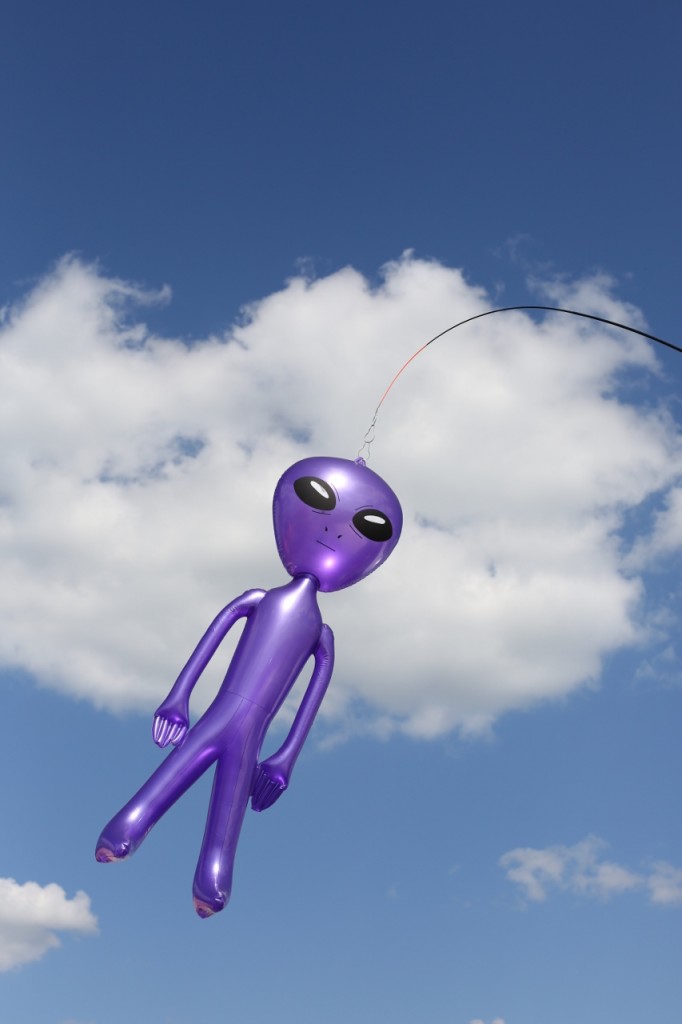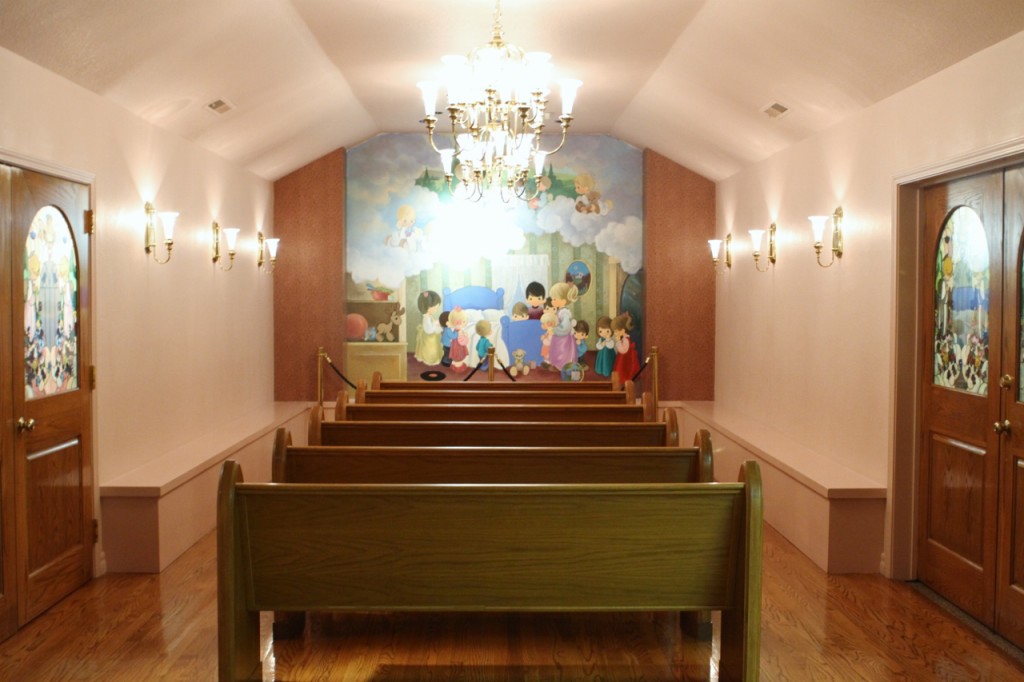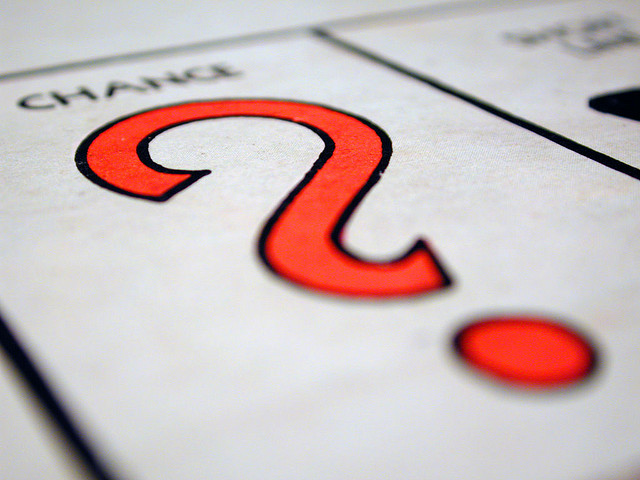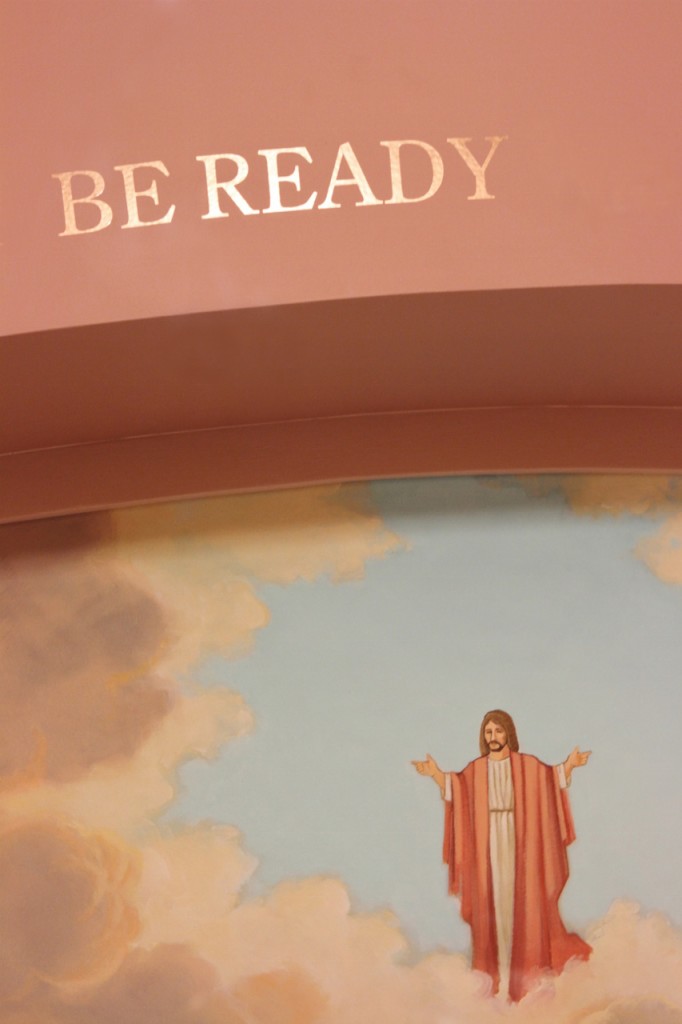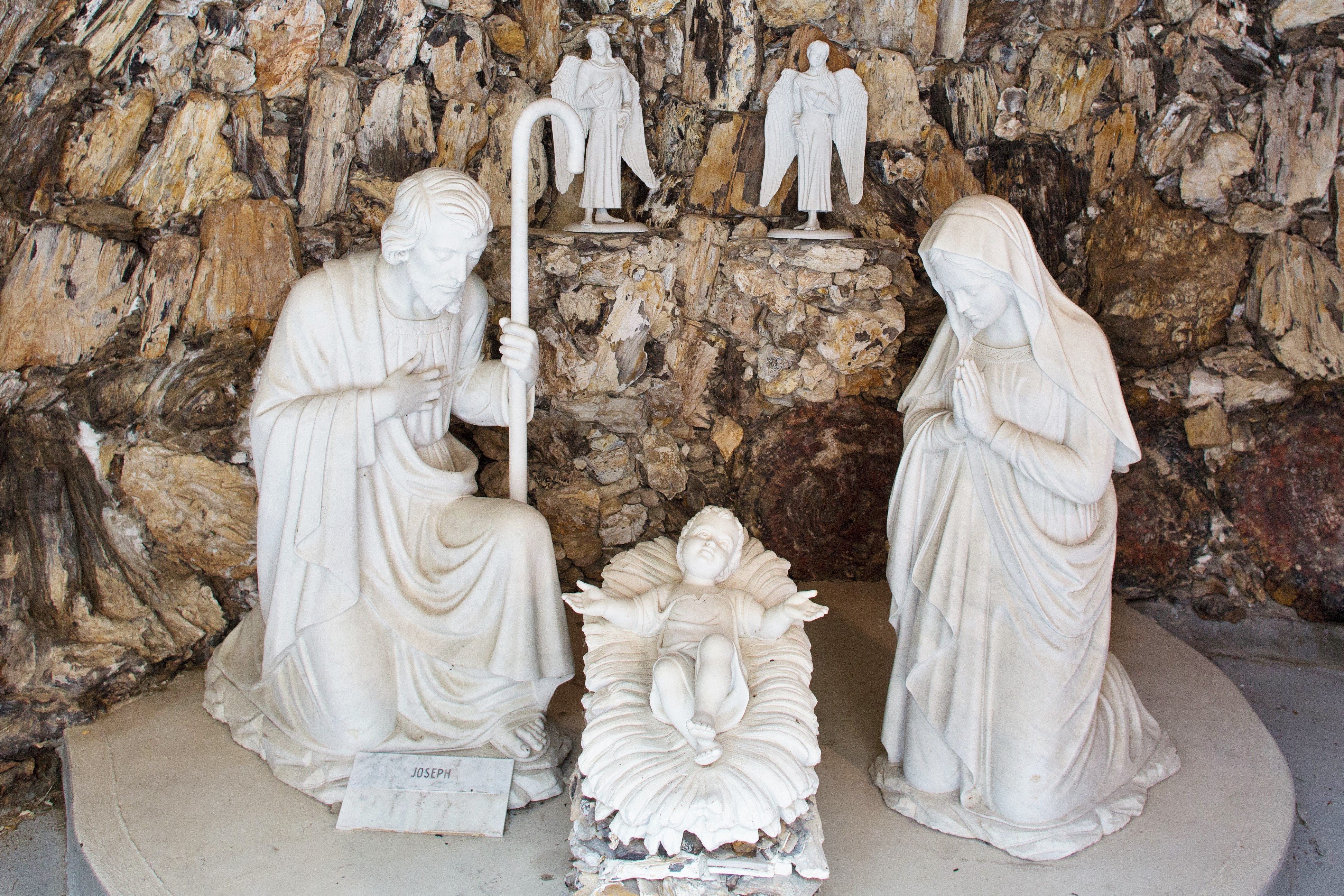
By Jenny Hatchadorian
As we drove back from our daughter’s two-month check-up in Sunset Park, Brooklyn, my husband Aaron and I were primed for an argument. Once again, the pediatrician’s message was that we were bungling things, especially in regard to our daughter’s constipation. “Pear juice hasn’t worked. She won’t drink it,” Aaron said in clipped speech.
“What if we make the bottles with more water?” I offered.
“When it seems like she has to poop, we need to hold her knees up to her belly. It will help, ergonomically. That’s how Baby Jesus designed us.”
Up until this moment, the utterance of Baby Jesus was accompanied by sarcasm, but I could tell by the coldness of his words that he wasn’t joking. Just in case, I clocked him for a smirk, but it only arrived after my second glance.
Baby Jesus first entered my lexicon when I met Aaron’s parents nine years earlier in North Carolina. In advance of the visit, Aaron mentioned his parents had become more conservative since they’d moved from Cleveland, but this didn’t concern me. I was raised by Republicans.
Compared to my fiscally conservative and socially still quite conservative parents, I found Aaron’s parents hopeful, adventurous, and open-minded. They were religious, some would say very, especially his mother who possessed the zeal of a converted Catholic, but as long Aaron and I were on the same page, their beliefs were less relevant to me.
After dinner, I grabbed my suitcase and followed Aaron upstairs. Exhausted from teaching, LaGuardia, and smiling so much my cheeks hurt, I half listened as I rolled my suitcase on the ivory carpet. “This is the frog. It stands for ‘finished room over the garage.’ It’s the only guest bedroom with a bathroom,” Aaron pointed to a large, sunken room. He walked further down the hallway and gestured to a bedroom with a twin bed and ceiling fan. “This is Denver Broncos. When we moved in, it had Bronco’s trim.”
Then he stopped at a guest bedroom next to a bathroom. “Here’s your room.” He gestured inside. “Jeanene Horses.”
For the moment, I put aside Jeanene and her horses. “My room?”
“Yeah, I’m in Broncos.” He rolled his eyes.
“But we live together.” We shared an apartment in Brooklyn, as we had in Los Angeles.
“It’s just because of Baby Jesus.”
Like Jeanene Horses, he seemed to think the phrase “Baby Jesus” communicated something to me, but it didn’t. “What does that mean?”
Aaron pulled his arms close like a T-rex, made his lips loose and gurgled like a baby. Then he stood on his toes, glared down at me, and said in a high-pitched voice, “You’re not married.” For effect, he twirled his arms and let out a high-pitched, maniacal giggle.
I pursed my lips.
“We’re not married,” he said in his normal voice and wiped drool from his lips.
“I see,” I said. As I wheeled my suitcase into Jeanene Horses, the ivory carpet muffled the sound.
On the last night of my visit, I sat next to Aaron’s mother at dinner. I knew not to discuss politics, but on a personal level she was sweet and curious. Unlike many religious people I’d met, she was open-minded and kind. Against type, she was knowledgeable and well-spoken. Even her obstinance was charming because she wore it with such confidence. Until, like any good heathen, I curled away when she let loose some disparaging comments about gay people and the doozy “I don’t think young people today feel enough shame.”
It was 2011. Shame was everywhere. There were more abortion restrictions than in the previous three decades and several states enacted the strictest voting laws since before the Voting Rights Act of 1965. I swallowed my rebuttal with my Brussel sprouts, but I couldn’t stop thinking about her comment.
As I ate, I weighed her comment against other family intel. Aaron’s cousin once told me a lengthy story about how she’d briefly joined the Church of Scientology. While she spoke, I tried to focus on her ability to feel a level of rapture and rhapsody I would never feel and not on the fact that Scientology rejected psychiatry, demanded a large amount of its followers’ income, and pushed an expensive list of courses called The Bridge to Total Freedom. In fact, several of Aaron’s family members were prone to spirited, irrational assumptions, but when I brought up his cousin’s involvement with Scientology, Aaron assured me he too was alarmed.
I was an atheist, raised by atheists who were overtly skeptical of organized religion. My family could be impulsive, demanding and capitalist, but we were logical. There were many lawyers among us, and we could distill any argument to a rational motivation. Throughout my life, I’d been repelled by organized religion not only because of everyone the church left out—women, gays, trans people—but also because I couldn’t bear irrational people.
In the 1990s, I grew up as the rare child of divorced parents in a heavily Catholic Cleveland suburb. In middle school, my boyfriend broke up with me because I did not attend Parish School of Religion classes. PSR classes were taught at several local churches and provided catechetical education to kids in public school, but because it was a loosely disciplined after-school activity for thirteen-year-olds, it was also a meat market. Even as a teenager, I knew it was nonsense that I was dumped over PSR. I knew religion was nonsense. Now as a filmmaker and adjunct professor in New York, my distrust of religion had grown. Essentially, I didn’t think I could spend my life with a religious person.
“That sucked what your mom said about gay people,” I whispered to Aaron during a clandestine visit to Denver Broncos.
“Oh, she just thinks they’re defying Baby Jesus,” Aaron said and dismissed my concern with a swipe of the hand.
I’d always cherished the fact that he was the black sheep of the family, but this was the second time he’d mentioned Baby Jesus. I looked at him. Were beliefs and personality innate? Even if buried during his rebellious twenties, later in life would his upbringing rear its ugly head?
He smirked at me. “You know I’m not religious at all, right?”
I dug my toe in the ivory carpet. “Were you ever?”
He shook his head like he was annoyed to answer. “Even in eighth grade, I refused Confirmation. I knew it wasn’t for me.”
In that moment as the two of us stood in Denver Broncos against the wishes of Baby Jesus, his comment was enough. We wrapped up the trip sure we were on the same side of the divide.
•••
Little changed in the next nine years of our relationship. Looking back, those were blissful years where we flouted God-fearing values, had sex for pleasure, teased heteronormative expectations, and bashed the church with abandon.
Occasionally, there were inklings of Aaron’s religious upbringing. When a performance class at our Los Angeles film school planned a visit to a Baptist church in South Central LA, Aaron refused to go. The professor thought the vocal stylings of this particular Baptist preacher were affecting, winsome, and authentic, but Aaron wouldn’t bite. “I’m not comfortable laughing at people in church,” he said.
“That’s not what the field trip is about,” I said with a half smile. I was excited to use the word “field trip” at the age of twenty-five, while at the same time I related a genuine sentiment. If anyone laughed, the alternative but deadly serious professor would have reprimanded them, but the notion of attending church for anything other than worship pulled at Aaron’s heart strings.
Concerned, I turned to my trusty astrology book. I preferred this book because it listed horoscopes not by month, but by day, and it grounded its descriptions in personality traits. As I turned to Aaron’s page, I knew this route wasn’t entirely logical, but I needed guidance and I’d rather have it from the occult than white men in robes who stood behind podiums. Unfortunately for me, spirituality was all over Aaron’s page. The meditation for his birthday, The Day of Inner Fervor, was See God in everything. Notable passages of his horoscope included Belief is an important theme in the lives of December 10 people. Devotional types, they pray at the altar of character, wisdom, morality. The final sentence was the kicker: They may put their faith in God, the Universe, scientific laws or in a moving Spirit behind all things, but they generally put their faith somewhere.
To calm myself, I chose to believe Aaron put his faith in art. He had a BFA in photography, nearly an MFA in filmmaking, and he worked as a producer on film sets and as an artistic director for a record label. He had such a blind devotion to artmaking that he put up with many things I would not. On set, he spent fourteen hours a day on the Canadian border in below-zero temperatures and bathed in an outdoor shower in November. He wrote emails at 4 a.m., and he drove three hours to buy an actor a Peloton, all in the name of art.
I, too, worked in the arts, although sometimes begrudgingly. I occasionally fantasized about having a more stable or lucrative career, but Aaron couldn’t fathom it. He didn’t see the point, even when we were so broke. After years of supporting us in reality TV, he’d pulled the plug on his stable job when we’d saved enough for a sandwich. Aaron and I also diverged in how we categorized artists. I thought an artist was someone who exhibited work, while Aaron thought an artist was someone who saw the world through an aesthetic lens … which sounded awfully … spiritual. So, he was spiritual, that wasn’t bad. His faith was in art, I told myself as I settled under the sheets at night.
•••
Suddenly, when Aaron became a dad, Baby Jesus was uttered not with sarcasm, but as a salve during intimate moments and a solution in times of stress.
As new parents, our anxiety was completely intertwined with the frequency and texture of our daughter’s excrement. We had graduate degrees, we were award-winning filmmakers and writers. We had slowly, steadfastly crafted the lives we wanted—but everything we held dear was at the whim of our daughter’s poop. When she was backed up, she wouldn’t play, sleep, or sit. She screamed, fussed, and was inconsolable, and our lives came to a screeching halt.
Generally, after a day and a half without a poop, we began to troubleshoot. At our disposal, we had a variety of strategies our pediatrician encouraged, and some he allowed with reservation. Judging when to utilize the emergency measures was obviously a fraught decision. When the lack of shit hit the fan, it was no surprise that Aaron tended toward abstinence, or divine intervention. As the vessel who carried our daughter, her screams pierced not only my ears, but my uterus and soul, or maybe I was just a wimp. I preferred to use everything in the medicine bag until the turd left the building.
During a particularly long bout without a poop where we followed Aaron’s method of doing nothing, our daughter clung to us and whimpered for the better part of three days. When the moment finally presented itself and our daughter passed a boulder so well-packed, she screamed in pain, I shouted over her cries, “I told you we should have used the mineral oil.”
“That’s not how Baby Jesus made assholes!” Aaron screamed. There was not a smirk before, after, or anywhere in the vicinity of his comment.
Our warring perspectives were probably not helped by the fact that our daughter was born in February 2020, a few weeks before the Covid-19 lockdown. We suffered not only the isolation of new parents, but the seclusion of the pandemic.
At night, we were relegated to our movie projector. Like any two people, our tastes diverged, and we were both filmmakers, so obviously we argued about movies. I was a film professor who could handle more academic material, while Aaron’s taste drifted commercial. In the past, we’d disagreed over Hitchcock’s Vertigo, which he considered romantic, while I found it depressing that the hero only loved the heroine when she was disguised as another woman. I’d put off watching It’s a Wonderful Life until my mid-thirties because I sensed it was… well… Catholic. When I finally saw it per Aaron’s suggestion, he cried at the movie’s sense of love and sacrifice, while I thought it was blaringly disheartening that Jimmy Stewart never left his dying small town and instead lapsed into depression and alcoholism.
Once Aaron became a father, his taste skewed in a direction I could not grasp. Over his former preference for stand-up, horror, and boundary-pushing foreign films, he chose family movies. Weeks after our daughter was born, we streamed the TV show Virgin River about a woman who finds love in a small town, followed by both the original and remake of the maternal suburban The Stepford Wives, before landing firmly in the 1950s with Cat on a Hot Tin Roof. This riveting piece of cinema culminated with Elizabeth Taylor lying that she was pregnant to please her extended family. This was not the impetus to the story; it was the end. In the final frame, Director Richard Brooks winked at the audience with a kaleidoscopic fade on a long kiss between Elizabeth Taylor and her husband suggesting that maybe, finally, she’d just do what everyone wanted and get pregnant. After that hot mess, Aaron and I settled for less confrontational content, but, even ironically, there are only so many times a film professor can watch the Hallmark Channel.
A chilly spell at the end of April caused me to bring out our daughter’s stroller sleeping bag. With her zipped in the bassinet, I walked laps in Prospect Park amongst socially distanced crowds. After the genius move of not discussing whether we should have a child before I became pregnant, Aaron and I followed that up with the winning decision of not reviewing how we would raise our daughter. In forty-degree rain, I was desperate to talk to other urbanites. All I needed was a quick jab or poke at religion, but even with a mask on, no one would come near me.
As I pushed the stroller back toward our apartment, I was sympathetic toward my husband, to a point. For me, everything changed a year ago when I became pregnant. For him, things didn’t really shift until two months ago when our daughter was born. The entire time my body ached and ballooned, I mourned the loss of my childless life, but I also promised myself that not everything would change.
When I returned home, Aaron stood in the kitchen and unwrapped a cardboard box that had arrived in the mail. On my walk, I’d concluded that a pandemic not only prompted isolation, but fostered beliefs of the less sound mind. Maybe my logical husband had fallen victim to the mental toll of the pandemic. As I set our sleeping daughter in her crib, I approached him with extra compassion.
He pulled the last piece of bubble tape off what was clearly his childhood advent calendar. The calendar that hung in my childhood home was fluffy and bright with candy canes, mittens, and snowflakes. This austere, biblical calendar featured a wooden baby cradle, an ornate urn, and a goblet to drink Baby Jesus’s blood. I was mortified. Also, it was April. I took a deep breath and remembered my sentiment of compassion, but my gaze narrowed on the urn. “What’s with the urn? Whose ashes are in it?”
He shot me a glance.
I smiled, willing warmth into my face, if not my words.
“It’s not an urn. It’s a jar of frankincense, or perhaps myrrh. It’s one of the wise men’s gifts. See?” He pointed to the nativity scene at the top of the calendar.
“It’s April.”
“It’s homey.” He walked to the sink. As he fetched a glass of water, he added, “It’s good for her to become familiar with the iconography.”
“The iconography?” I blurted out.
He nodded as he drank. My compassion left the room, so I did, too.
The next day, I woke from a nap in our railroad apartment to hear Aaron bouncing our daughter on his knee in the next room. “Baby Jesus made these toes, these legs, this belly,” he sang. He kissed each body part after he named it. It was cute. Cute, and troubling. I rolled over, acquiescing that Jesus was in the house.
•••
Two months later we were forced out of New York. Moving during the pandemic was no treat, magnified by the fact that Aaron found work well off the beaten path in Bozeman, Montana. Days before our car transport service arrived, the company tripled the price, so we decided Aaron would drive, and I would fly cross-country with an infant and a cat.
Alone in the apartment, I took care of our daughter and cleared the wreckage of our presence. The day before our flight, Aaron called.
“Hey!” I said, sidetracked with the list of things I had to do before I turned in our keys.
He merely breathed into the phone.
“Honey? Hello? Are you there?”
“Yeah.”
“Where are you?”
“South Dakota.”
“Good, you’re almost there.”
“I think I should turn around.”
“What? No. Why?”
“I don’t know about you flying alone.”
“I can do it. It’s fine.” Four months postpartum, taking two flights with an infant and a cat was not a walk in the park, but I could do it.
“What if they take the baby?” he asked in short speech.
“Who?”
“TSA.”
My glance darted around our empty apartment and landed on a wall mirror—here on the heels of Baby Jesus was the spirited irrationality. I looked at myself in the mirror. “TSA is not going to steal our daughter.”
“You don’t have her birth certificate,” he said.
This was true. His family had planned a trip to Ireland, so we’d sent away for her passport. Still, TSA was not going to take the baby. “I have other documents. You just miss her, but she’s doing great. She pooped today. Actually, she pooped twice. Soft and large.”
There was a time when news of our daughter’s silky excrement was enough to elevate Aaron to a state of euphoria. This was not one of those times.
He sighed into the phone.
“Stay the course, honey. It would take longer to get back here. You wouldn’t make it before our flight,” I said as the tires of our basement-level Prius C hummed into the phone. It was his third day on the road, and my heart went out to him. “It’s crazy to drive alone for that long. It messes with your head. You’re almost there. We’ll be there tomorrow, and we’ll meet you.”
“Not if it’s up to TSA…” he muttered.
“Remember, she has my name. That’s why I’m flying with her. It’s cleaner, logistically. Plus, we didn’t steal her, so it’s all good.”
“They don’t know that.”
“Honey.” I bit my lip. “TSA is not going to take the baby. It’s a domestic flight. They’re not even going to check for identification.”
He seemed to mull over my words. As I counted the dust bunnies on the adjacent wall, I prayed that I got through to him. If I put my faith anywhere, it was in my husband.
Right now, he was probably cruising on a desolate stretch of I-90. Sioux Falls was at one end of the state, but it was a long six hours until The Badlands, Black Hills National Forest, and Rapid City at the other end. In between, there wasn’t much more than a raw sun and an occasional shopping center, or maybe a field of sunflowers. After three days of fast food, lumpy motel beds or—if I knew Aaron correctly, reclining in the driver’s seat at a truck stop—he was wan, uninspired, and sprouting acne. Alone in the car, he went without A/C in late June to save gas. With his t-shirt and the driver’s seat coated in back sweat, he drove, feeling the strain and uncertainty of another move while missing his wife and daughter.
I could handle a spiritual man but not an irrational one. Aaron was logical; he was under the stress of becoming a new parent and moving across the country during a pandemic. He was living proof that personality was not innate. Nurture triumphed over nature. Aaron knew the TSA did not steal babies; he was rational. In his long, slow breaths that permeated the line, I could hear his brain working it out this very moment.
Then his breath quickened right before he wailed, “But … what if they take the baby?!”
•••
JENNY HATCHADORIAN has been published by Story Club Magazine, Role Reboot, and Little Old Lady. Her comedic essay New Family won Story Club Cleveland’s Audience Award. She is working on a book of comedic essays titled Midwestern Witch. Follow her on Instagram @hatchadorianhere or Twitter @hatchadorian

 Follow
Follow
